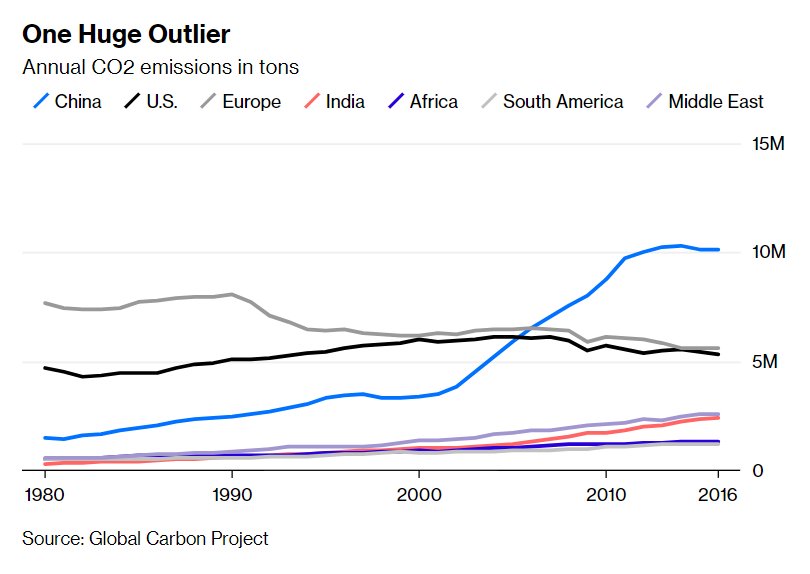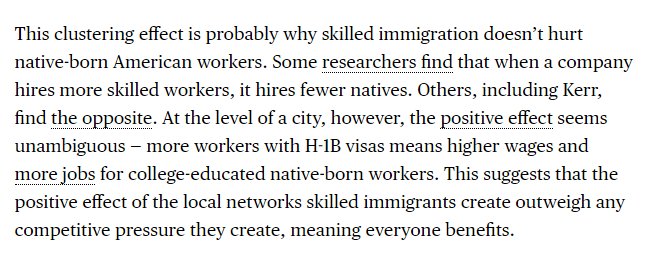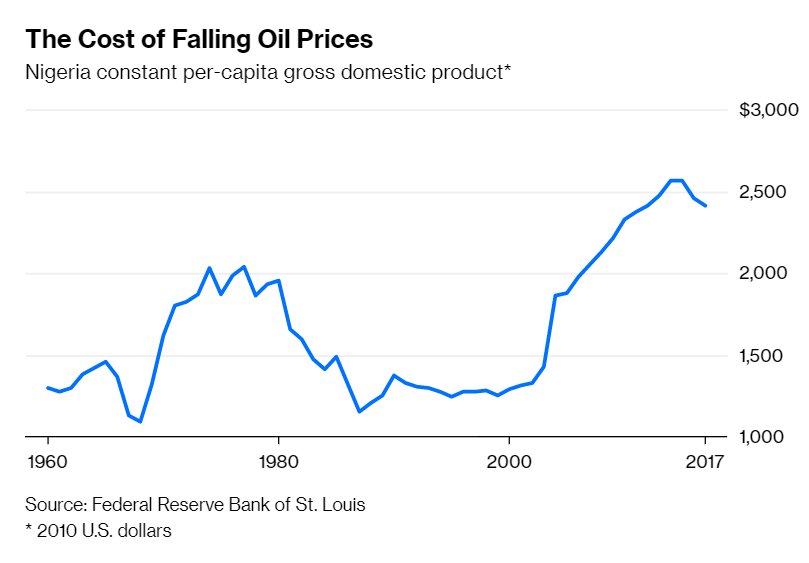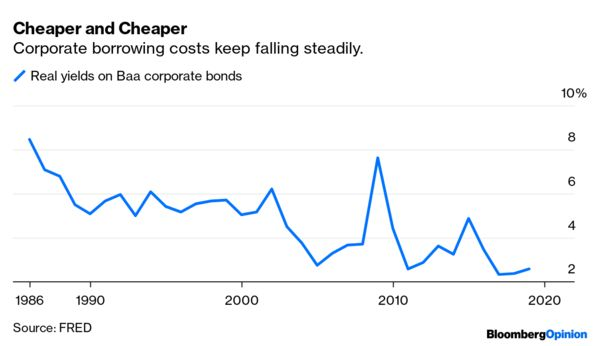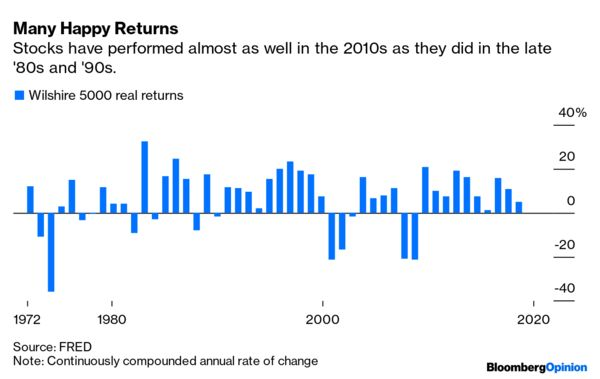It looks like decolonization just took a few decades to start
Basic econ theory says poor countries should grow faster than rich ones.
But for much of the Industrial Revolution, the opposite happened.
https://t.co/JjjVtWzz5c
Why? Probably because the first countries to discover industrial technologies used them to conquer the others!
But then colonial empires went away. And yet still, for the next 30 years or so, poor countries fell further behind rich ones.
https://t.co/hilDvv0IQV
Why??
Possible reasons:
1. Bad institutions (dictators, communism, autarkic trade regimes)
2. Civil wars
3. Lack of education
But then, starting in the 80s (for China) and the 90s (for India and Indonesia), some of the biggest poor countries got their acts together and started to catch up!
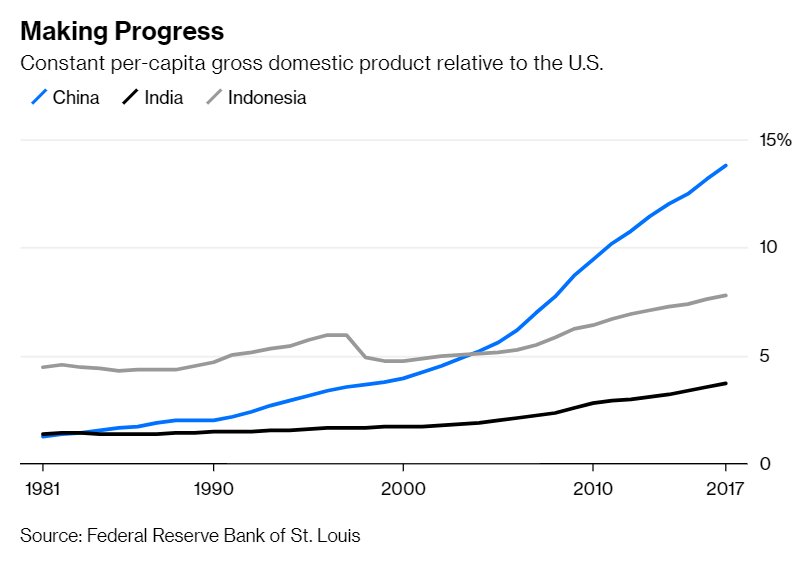
Global inequality began to fall.
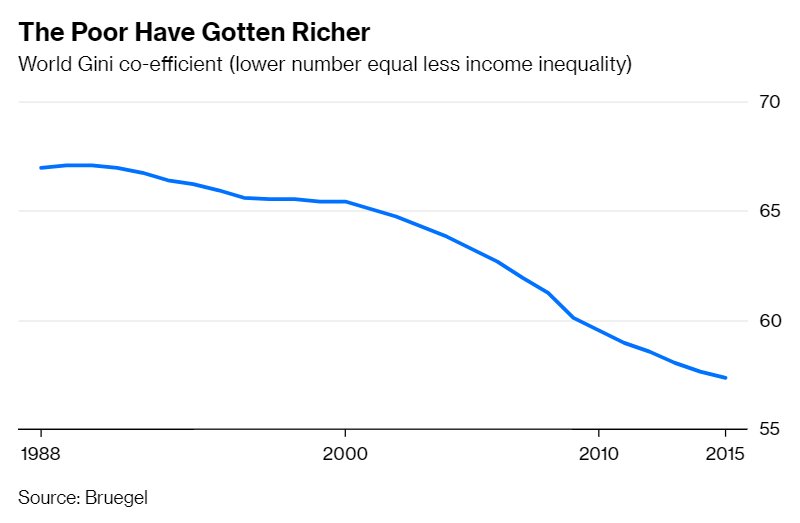
This explains why immigration is now at the center of partisan conflict.
Why did California turn Blue?
— Sen. Eric Brakey (@SenatorBrakey) October 28, 2018
Why is Texas turning Blue?
The left has failed at selling socialism to the American people for decades. We have rejected it.
Their new strategy is mass importation of new voters to transform our political culture.
Of course, the belief in ethnic bloc voting becomes a self-fulfilling prophecy.
When a slight Dem tilt among Hispanics and Asians caused the GOP to turn against them, Hispanics and Asians shifted more toward the Dems. Etc. etc. A self-reinforcing cycle.
Bush's 2006 amnesty attempt, and the 2013 intra-GOP fight over immigration reform, were two moments when the GOP could have turned back to the approach of Reagan, and courted Hispanics and Asians.
But they decided against this, and...here we are.
What will disrupt this bad equilibrium, and save American politics from being an eternal race war?
Either:
A) More white voters will grow disgusted with the GOP approach and defect, or
B) The GOP will find some non-immigration-related issues to attract more Hispanics and Asians.
As long as both parties see elections in terms of racial bloc voting - where the only way to win is to increase turnout among your own racial blocs or suppress turnout by the other party's racial blocs - American politics will not improve, and the country will decline.
(end)
\u2018The Simpsons\u2019 producer confirms Apu is being written out of show following controversy https://t.co/lKzFCe1wFa pic.twitter.com/s34IUDUtqs
— NME (@NME) October 26, 2018
2/Apu's presence in Springfield represented a basic reality of America in the late 20th and early 21st century: the presence of nonwhite immigrants.
3/As Tomas Jimenez writes in "The Other Side of Assimilation", for my generation, immigrants from India, China, Mexico, and many other countries aren't strange or foreign. On the contrary, they're a
4/But that America I grew up with is fundamentally ephemeral. The kids of immigrants don't retain their parents' culture. They merge into the local culture (and, as Jimenez documents, the local culture changes to reflect their influence).
5/Simpsons character don't change. But real people, and real communities, do. So a character who once represented the diversity that immigrants brought to American towns now represents a stereotype of Indian-Americans as "permanent foreigners".
Secretary of State Mike Pompeo said the U.S. is quickly approaching \u201ca moment of crisis\u201d because of the \u201crecord number of migrants\u201d spilling into the country https://t.co/QuiWPcXswA
— POLITICO (@politico) October 20, 2018
Facts.
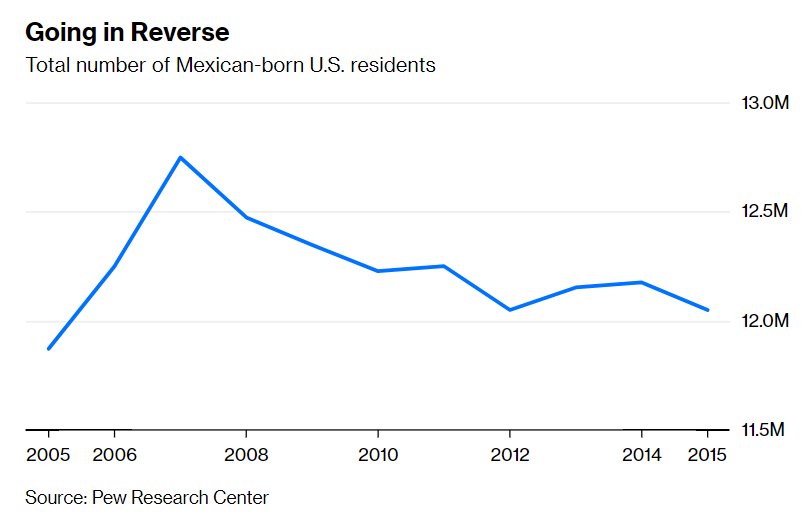
Facts!!
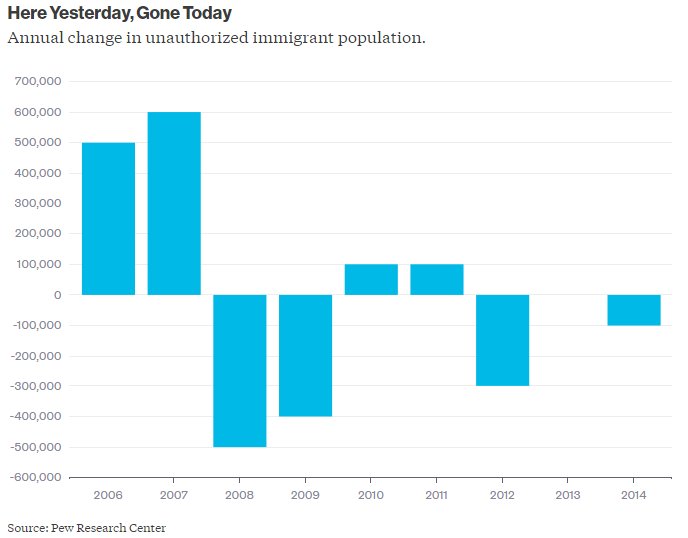
FACTS FACTS
Moar
At one point there were five bombings in America *every day*. https://t.co/VUnLr2IDyt
— Noah Smith (@Noahpinion) October 7, 2018
Deadly riots in literally hundreds of American cities. A rash of high-profile political assassinations. Soldiers shooting protesters on college campuses!
Labor disputes used to kill hundreds of people!
In 1932 Douglas MacArthur called in tanks on protesting veterans, injuring over a thousand people!
In 1967 there were 159 race riots in cities across
In 1921, rioters used airplanes to bomb black businesses in Tulsa, Oklahoma! Hundreds were killed in the riot!
I will be live-tweeting again, and you can also watch video at either the Twitter or Facebook links below!
Bloomberg Ideas conference now starting! I will be live-tweeting it. You can watch on our Facebook or Twitter pages (links below)! https://t.co/Mbr9dZzWBy
— Noah Smith (@Noahpinion) October 25, 2018
Kaissar: Every industry gets regulated when it gets big. The question is what kind of regulation Big Tech will get,and whether the companies will be proactive in shaping it.
Kaissar: More profitable companies have higher returns. Why? Maybe it's a risk factor, because more profit = higher risk of getting regulated.
Bershidskyis showing a diagram of GDPR complaince pop-ups. What a massive ill-conceived bureaucratic mess.
Ritholtz: It's 2018 and we're still talking about Facebook privacy settings?! If you're still giving your personal data to Facebook, you just don't care about privacy!
Today and tomorrow we'll be having a Bloomberg Ideas event!
— Noah Smith (@Noahpinion) October 25, 2018
Today will be a panel on cryptocurrency.
Tomorrow will be panels on the economics of AI, and on regulation of big tech companies.
You can watch livestreams here:https://t.co/1dC0ELGvabhttps://t.co/Juz5Mp2EC1 pic.twitter.com/VfxOscNflo
Our first panel is about cryptocurrency! We have @matt_levine, @tylercowen, @eiaine, @nirkaissar, and Camilla
Ou: Crypto will be useful for the unbanked.
Cowen: Crypto has to compete against a bunch of other emerging payments technologies. Bitcoin is too inflexible.
Cowen: I'll bet on the payments companies over crypto.
"She now finds herself in the uppermost echelons of the culture industries, where woke liberalism is de rigueur and departures from it are stigmatized." @reihan on Taylor Swift's swing towards politics: https://t.co/cKW4LoY9IV
— The Atlantic (@TheAtlantic) October 11, 2018
Basically we have a whole bunch of ways of saying "You can't possibly believe that!!". Which helps us avoid the terrifying fact that yes, people generally do believe it.
Of course, "believe" doesn't mean what it means in econ class. It means that people get a warm feeling from asserting something, even if they don't know what it means. "God is omnipotent", etc.
A lot of times we believe extreme things, simply because asserting those things all together in a group gives us a warm feeling of having an army on our side.
It's not competitive wokeness. It's COOPERATIVE wokeness.
"Virtue signaling" isn't fake or pretend. It's real.
"Virtue", when it comes right down to it, means membership on a team.
Sometimes, to prove you're on a team, it helps to say something people on the other team could never bring themselves to say.
Imagine for a moment the most obscurantist, jargon-filled, po-mo article the politically correct academy might produce. Pure SJW nonsense. Got it? Chances are you're imagining something like the infamous "Feminist Glaciology" article from a few years back.https://t.co/NRaWNREBvR pic.twitter.com/qtSFBYY80S
— Jeffrey Sachs (@JeffreyASachs) October 13, 2018
My theory is that the jargon creates an artificial barrier to entry. https://t.co/MqLyyppdHl
If one must spend years marinating one's brain in jargon to be perceived as an expert on a topic, it protects the status and earning power of people who study relatively easy topics.
In econ, a similar thing is accomplished by what recent Nobel prize winner Paul Romer calls "mathiness": https://t.co/DBCRRc8Mir
But mathiness and jargon are not quite the same...
Jargon usually doesn't force you to change the substance of your central point.
Mathiness often does. By forcing you to write your model in a way that's mathematically tractable (easy to work with), mathiness often impoverishes your understanding of how the world really works.
has written about this problem:
If you're on Twitter all the time - as every political commentator now is - it's easy to think that whiny, big-talking Twitter slacktivists are "the Dems".
But what's happening out there on the ground?
— VeryHiddenGeniusHat (@Popehat) October 18, 2018
This is another reason I think Twitter is so bad for society.
It convinces intellectuals and commentators that practically everyone who's on their side is an extremist.
Which makes them tolerate extremism out of a (false) feeling of necessity.
If you stay on Twitter too much (which we all do now), you start to think that the typical left-of-center person is some British wanker who quote-tweets "Imagine thinking this" to anyone who doesn't like the idea of "ending capitalism".
But he is not typical.
A majority of Americans are not on Twitter.
But *every* journalist, commentator, and intellectual *has* to be on Twitter.
So every journalist, commentator, and intellectual comes face to face with big-talking slacktivist faux-extremists day in and day out.
It's a problem!!
Online bubbles full of shouty faux-extremists are, in general, fine.
The difference is that every journalist, commentator, and intellectual is essentially forced to exist in THIS bubble, because their jobs require it.
Twitter is a dystopian technology.
(end)

